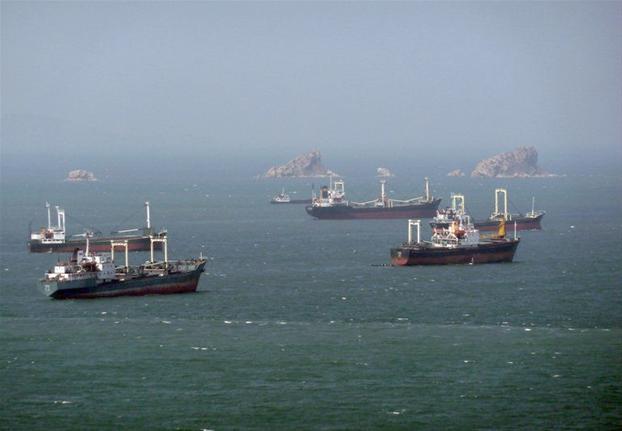A shipment of graphite cylinders usable in a missile program and suspected to have come from North Korea was found in May aboard a Chinese ship en route to Syria.
 A shipment of graphite cylinders usable in a missile program and suspected to have come from North Korea was found in May aboard a Chinese ship en route to Syria in what appears to have been a violation of U.N. resolutions, diplomats said on Tuesday.
A shipment of graphite cylinders usable in a missile program and suspected to have come from North Korea was found in May aboard a Chinese ship en route to Syria in what appears to have been a violation of U.N. resolutions, diplomats said on Tuesday.
South Korean officials seized the shipment of 445 graphite cylinders, which had been declared as lead piping, from a Chinese vessel called the Xin Yan Tai, U.N. Security Council diplomats told Reuters news agency on condition of anonymity.
South Korean authorities stopped the ship at the South Korean port of Busan, the envoys said, adding that the cylinders were intended for a Syrian company called Electric Parts.
South Korean officials briefed the Security Council's North Korea sanctions committee about the seizure on October 24, the envoys said, and China had offered to help investigate the circumstances surrounding the incident.
"It appears the cylinders were intended for Syria's missile program," a diplomat said. "China assured us they will investigate what looks like a violation of U.N. sanctions."
Another diplomat said: "It's possible that the crew of the Chinese ship had no idea what this shipment really was. It's good that China's expressed a willingness to investigate."
Diplomats said the graphite cylinders appeared to be consistent with material usable in a ballistic missile program and that South Korea would be jointly investigating the case with China.
The shipment to Syria was arranged by a North Korean trading company, diplomats said. One diplomat also stated the Syrian company that was to have received the cylinders may be a subsidiary of the North Korean trading firm.
North Korea is barred from importing or exporting nuclear and missile technology under U.N. Security Council sanctions imposed on Pyongyang because of its nuclear tests in 2006 and 2009.
There are U.S. and European Union sanctions on the government of Syrian President Bashar al-Assad, who has led a 20-month military campaign against an increasingly militarized opposition.
“The DPRK (North Korea) continues actively to defy the measures in the (U.N. sanctions) resolutions," the Security Council's Panel of Experts on North Korea, said in May.